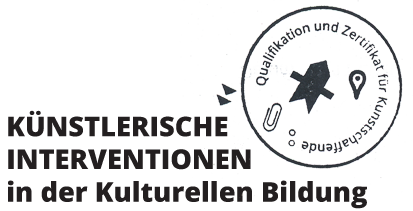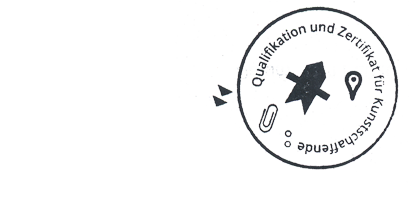


Strategies and Practice-based Formats for Art and Cultural Education
Methods and approaches to teaching cultural education and artistic-based projects are the focus of this module. Examined will be the challenges of cultural educational projects in both rural areas as well as digital space. Practice-based cultural education methods and formats from various disciplines—theater education, dance education, art education and museum education, music education and concert education, film education, literature education and media education—will be presented and analyzed together for their potential relevance for aesthetic cultural education. It will then be examined how the respective contexts and participants can impact or influence educational processes and how to take these aspects into account.
Central questions
Which cultural education methods are used with the various disciplines? How do the various disciplines differ from one another?
What are the differences in working with different age groups? What are the differences between urban and rural areas?
In what ways can digital processes enrich forms of cultural education work?
How can your own concepts of working artistically be translated into formats for working with groups?
How can overarching artistic methods and insights from the history of art and knowledge inspire new formats in cultural education?
Strategies and Practice-based Formats for Art and Cultural Education
Methods and approaches to teaching cultural education and artistic-based projects are the focus of this module. Examined will be the challenges of cultural educational projects in both rural areas as well as digital space. Practice-based cultural education methods and formats from various disciplines—theater education, dance education, art education and museum education, music education and concert education, film education, literature education and media education—will be presented and analyzed together for their potential relevance for aesthetic cultural education. It will then be examined how the respective contexts and participants can impact or influence educational processes and how to take these aspects into account.
Central questions
Which cultural education methods are used with the various disciplines? How do the various disciplines differ from one another?
What are the differences in working with different age groups? What are the differences between urban and rural areas?
In what ways can digital processes enrich forms of cultural education work?
How can your own concepts of working artistically be translated into formats for working with groups?
How can overarching artistic methods and insights from the history of art and knowledge inspire new formats in cultural education?